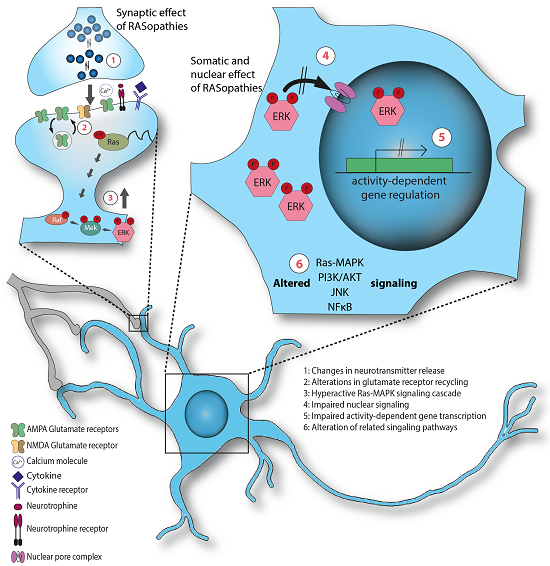TP2
In vitro models of neuronal dysfunction in RASopathies
RASopathies are often linked with cognitive and neurological impairments. Preclinical research suggested that overactive RAS-MAPK signaling induces maladaptive plasticity during development of neuronal networks, which ultimately interferes with normal neurotransmission and plasticity in the mature state. To foster development of new evidence-based therapeutic approaches we will explore maturation and function of cultured neuronal networks derived from patient iPSCs and brains of corresponding animal models. Electrophysiological and optical analysis of synaptic transmission and plasticity will be coupled with morphological and transcriptomic approaches to identify control points for maladaptive plasticity that will be tested as entry sites for pharmacological intervention. Side-to-side analysis of human and animal material will bridge the gap between preclinical research and clinical application.

Legend: The figure shows roles of MAPK-RAS signaling in neuronal function and plasticity underlying normal cognition. These cellular processes are likely to be impaired in RASopathies and will be studied at molecular, cellular and systemic levels using animal models in the frame of our project.
TP2 project description - previous funding period FP1







